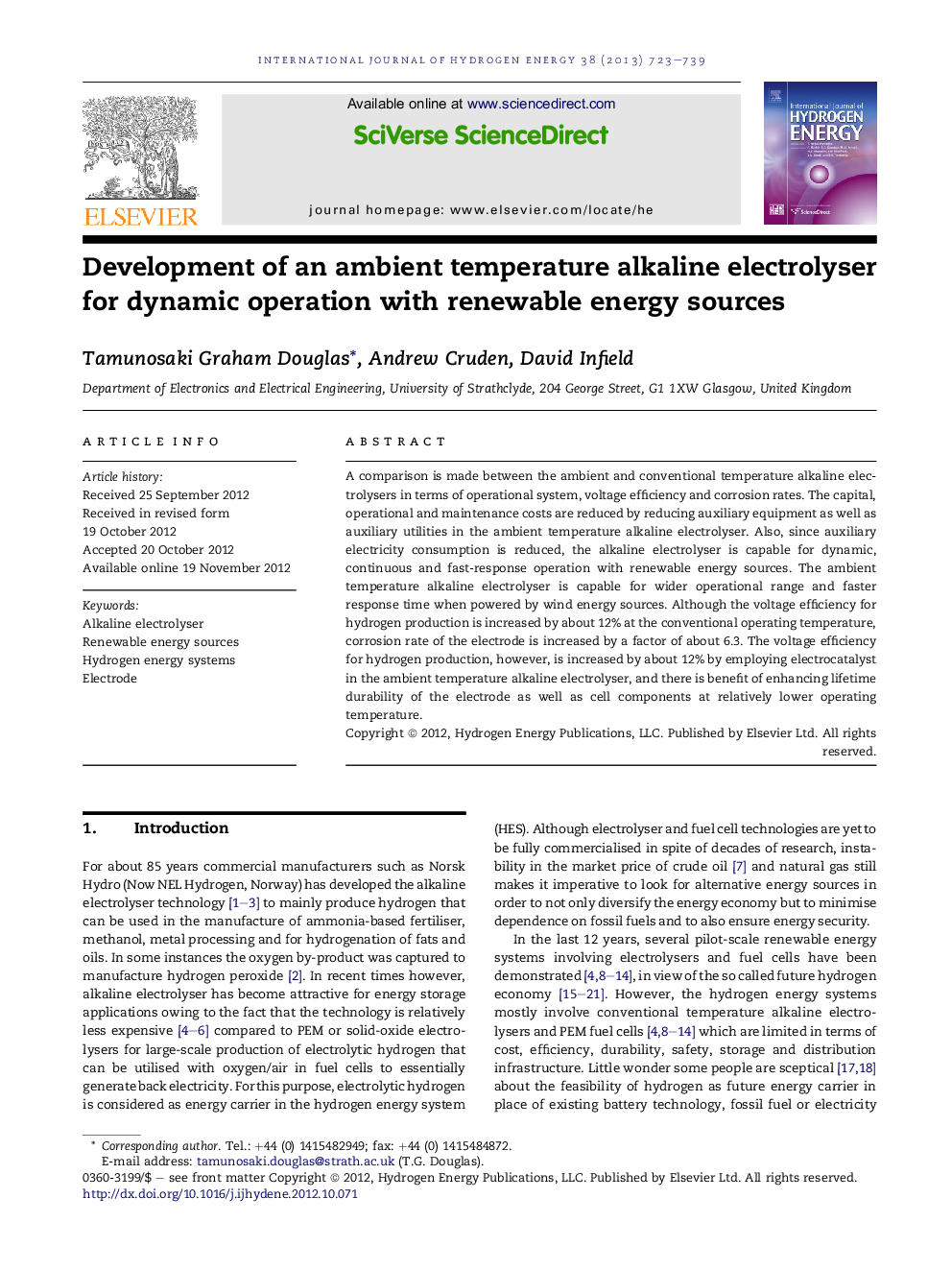| Article ID | Journal | Published Year | Pages | File Type |
|---|---|---|---|---|
| 1282039 | International Journal of Hydrogen Energy | 2013 | 17 Pages |
A comparison is made between the ambient and conventional temperature alkaline electrolysers in terms of operational system, voltage efficiency and corrosion rates. The capital, operational and maintenance costs are reduced by reducing auxiliary equipment as well as auxiliary utilities in the ambient temperature alkaline electrolyser. Also, since auxiliary electricity consumption is reduced, the alkaline electrolyser is capable for dynamic, continuous and fast-response operation with renewable energy sources. The ambient temperature alkaline electrolyser is capable for wider operational range and faster response time when powered by wind energy sources. Although the voltage efficiency for hydrogen production is increased by about 12% at the conventional operating temperature, corrosion rate of the electrode is increased by a factor of about 6.3. The voltage efficiency for hydrogen production, however, is increased by about 12% by employing electrocatalyst in the ambient temperature alkaline electrolyser, and there is benefit of enhancing lifetime durability of the electrode as well as cell components at relatively lower operating temperature.
► Auxiliary utilities are reduced in the operation of ambient temperature alkaline electrolyser. ► The alkaline electrolyser can be operated dynamically at the ambient temperature. ► The ambient temperature alkaline electrolyser is relatively low-cost technology. ► The electrode is more durable in the ambient temperature alkaline electrolyser. ► Electrocatalyst can increase efficiency of the ambient temperature alkaline electrolyser.
